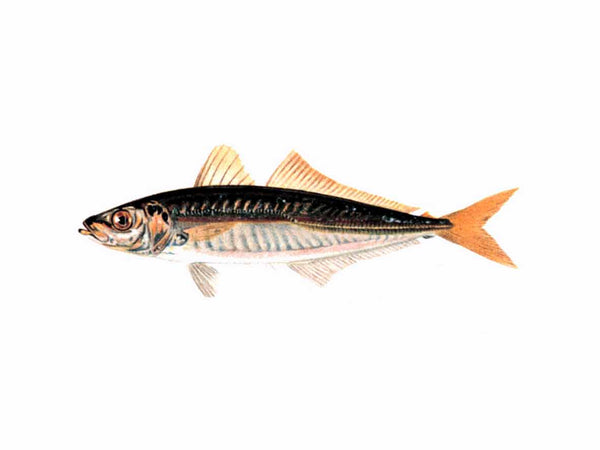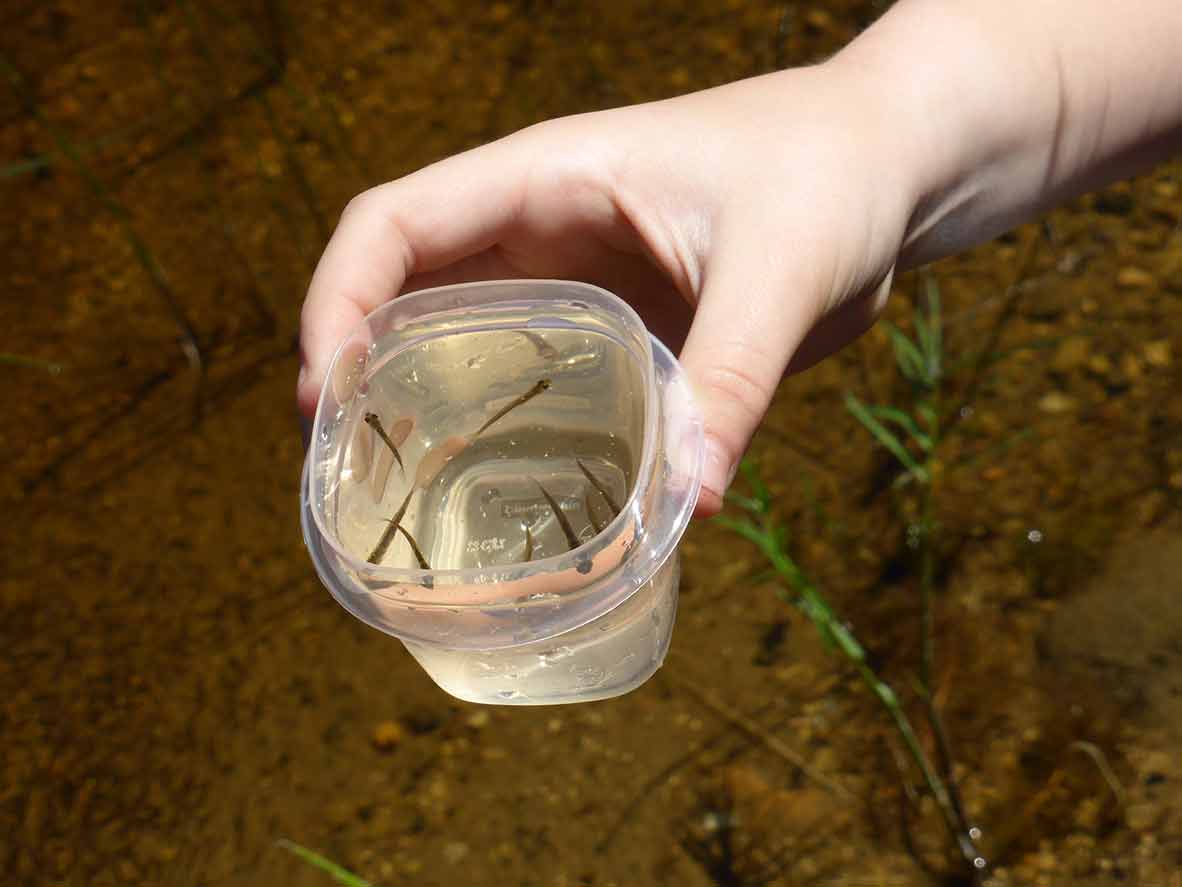Table of Contents
As an angler, I love all kinds of fish. Like many others, I have a bucket list of gamefish I want to catch, and I wouldn’t mind landing a lunker on most days.
But I have to say, baitfish are special to me. These small critters used by anglers to attract larger predatory fish may only grow to a couple of inches in size on average, but they hold a special place in my heart. They've repeatedly proven to be some of my favorites from my tackle box, especially at certain times of year, such as fall. As the temperature drops, baitfish congregate in large schools, attracting hungry gamefish that go on a feeding frenzy as the season begins. They are also less expensive, or even free, when compared to store-bought lures if you take the time to gather them yourself (if it is legal in your area).
Quick reminder on baitfish
Before I introduce some of my favorite freshwater and saltwater baitfish, I'd like to point out that different fishing spots have different regulations regarding what baitfish you can legally use. There are also rules regarding the release of unused baitfish into the fishing area as well as the importation of baitfish from other areas. This page contains a comprehensive state-by-state guide to live bait fishing regulations. You can also contact the office in your state that regulates fishing. Remember to bring your fishing license when you fish, as well, as we discussed in a previous post.
Match the hatch
Matching the hatch is one of the most useful tips for anglers. This means you have a good chance of catching fish if you try to attract them using the creatures they naturally feed on or artificial lures that look like the creatures they eat.
To do so, you must first determine what the fish you are after is eating. Cruising the shallows for a while will often provide you with the answers you seek, not only in terms of species, but also in terms of the size and color of bait or lure you'll be most successful with.
Check the condition of the water where you're fishing. Brighter-colored baits with natural patterns generally work best in clearer water. In murky water, darker-colored baits are preferable.
Other than that, you can take advantage of how fish use not just sight, but also smell and movement, in finding food. Many anglers use baitfish that smell and move in such a way that they strongly trigger the natural feeding instinct of the fish they want to catch.
Baitfish for freshwater fishing


Some of the freshwater fish that can be caught with these baits are bass, pike, crappie, sunfish, walleye, and pickerel.
Baitfish for saltwater fishing
If you’re fishing in saltwater, go for baitfish like anchovies, cigar minnow, scad, pilchard, menhaden, and herring. Saltwater fish are also known to love cut bait, that is, a mix of smaller fish you have caught on your fishing trip, as long as they still smell quite fresh. You can also bring frozen cut bait in a cooler.


With these baitfish, you can catch yellowfin tuna, bluefin tuna, bigeye tuna, swordfish, albacore, and mahi mahi, among others.
Check out our fishing shirts featuring some of our favorite creatures!
Natural bait that isn’t fish
When looking for natural bait, don't overlook creatures that aren't fish but are irresistible to many gamefish. Crickets, grasshoppers, earthworms, meal worms, frogs, leeches, beetles, shrimp, and crawdads are a few examples. Some anglers also swear by food items such as corn, bread, cheese, or dough.
Artificial lures
Of course, if you prefer artificial lures for their convenience, there are plenty of options that look similar to natural baitfish or bait.
Final Note
As a final note, remember that fish bite differently depending on the season. They also change their behavior in response to daily weather and water conditions. To ensure a high catch rate, it helps to prepare a variety of baitfish in your tackle box. And while you’re at it, learn about the differences between natural bait and artificial lures and which one is best for different fishing situations in this article.
Want to learn the differences between freshwater and saltwater fish? We’ve got you covered!
Also, check out our guide to freshwater fishing, and our blog for more fishing guides, updates, and debates!
MOST READ NEWS:
How To Use Your Fishing Records to Catch More Fish
Track your fishing trips, analyze patterns, and refine your techniques with a fishing log to catch more fish on every outing!
Solo Fishing Safety Tips: Stay Safe and Enjoy the Outdoors
Learn essential solo fishing safety tips: gear checklist, boat safety, emergency preparedness, weather monitoring & fishing location scouting. Stay safe on the water.
Secrets to Winter Fly Fishing Success
Master winter fly fishing with expert tips on trout behavior, essential gear, and proven techniques. Learn the secrets to catching more fish in cold weather.
How Cold Water Changes Fish Behavior: Insights for Anglers
Explore how cold water affects fish behavior and fishing techniques, enhancing your angling success and strategy.
Is Tech Making Fishing Too Easy? Exploring Forward-Facing Sonar (FFS)
Learn about forward facing sonar in fishing - what it is, how it works, rules for tournaments, ethics, and tips for finding fish with this game-changing technology.
Plan Your Best Fishing Trip Yet this 2025: A Complete Guide
Plan your fishing trip this off-season. Learn to choose destinations, prep gear, pick bait, and trust Baitium for expert tools and tips!
15 Fishing Resolutions for 2025: Set Yourself Up for Success
Discover 15 essential fishing resolutions for 2025: tackle organization, gear maintenance, angling techniques, conservation tips, tournament prep, and fishing safety guidelines.


